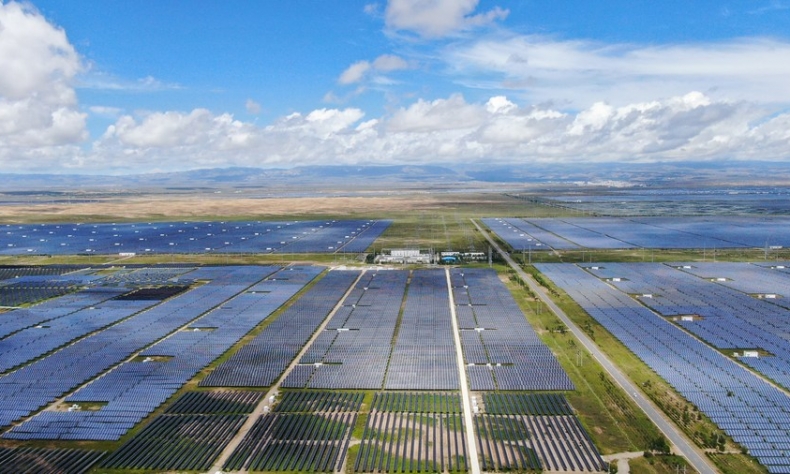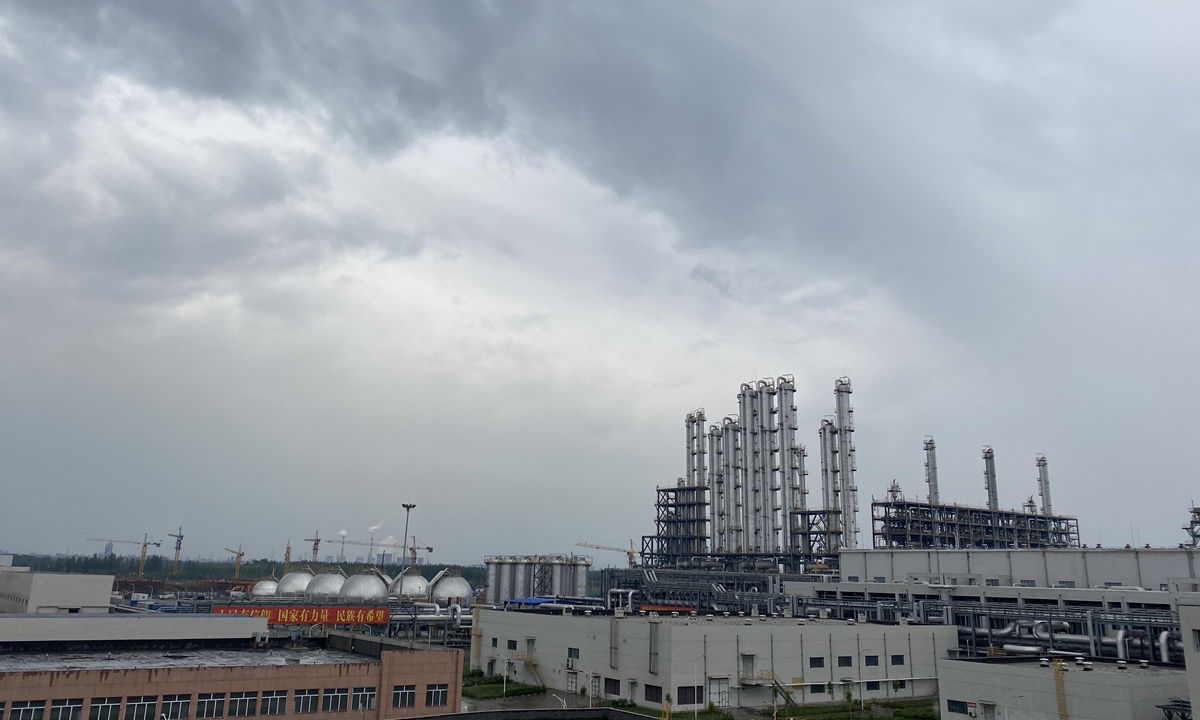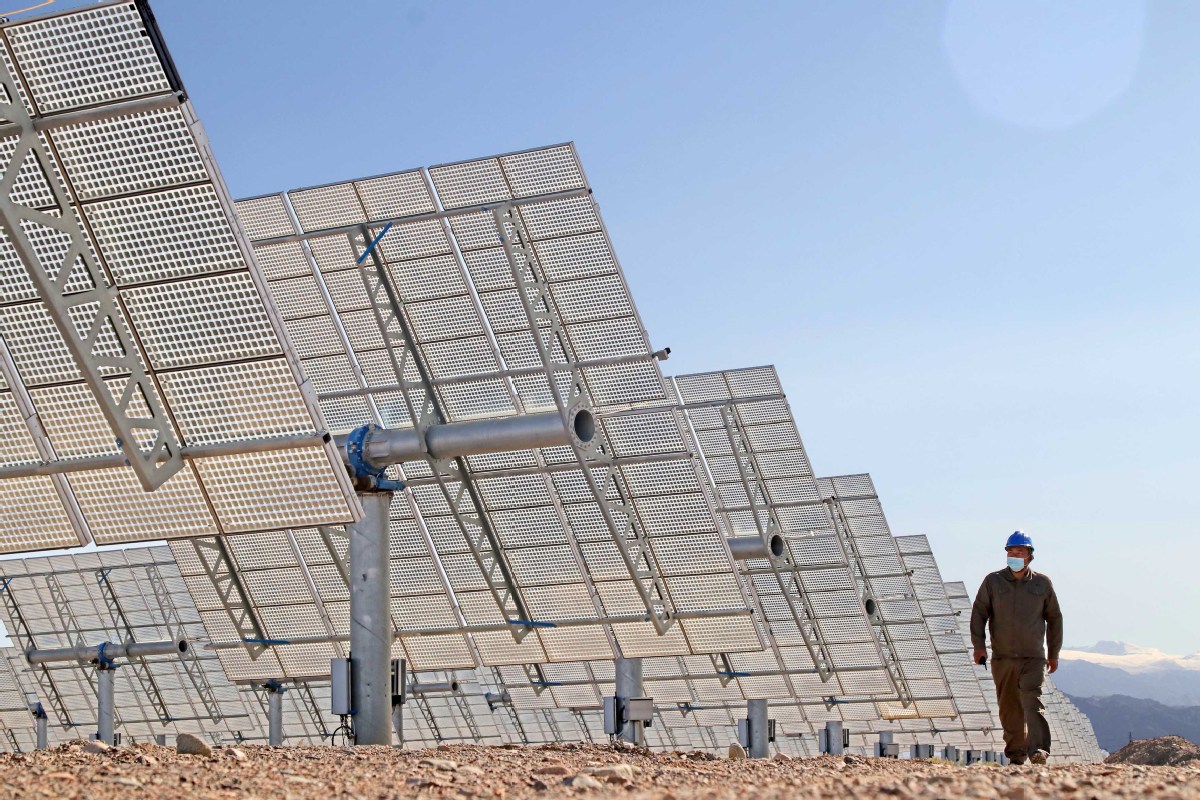US Containing China Takes Greater Priority over Tackling Climate

Biden Administration bans Chinese-made materials for solar panels in US market.
Joseph R. Biden during the 2020 US Presidential campaign, announced that if elected to the White House, he pledged to “transition away from fossil fuels.”
Biden appeared to have demonstrated his sincerity when he arrived at the Oval Office to sign an ‘Executive Order,’ to block the Canadian XXL natural gas pipeline that was expected to run through the US with a final destination for Houston, TX area refineries and ports. He also appointed former US Secretary of State John Kerry as the ‘Climate Change Czar’ at a Cabinet-level position.
Additionally, the Biden administration had returned the US as a signatory member of the United Nations Climate Change Pact that called for all participating nation states to reduce carbon emissions, to enforce tougher environmental regulations, to boost renewable, alternative sources of energy not requiring fossil fuels and to achieve a ‘net zero’ carbon emissions standards.
Complex path to ‘net zero’
For the US to succeed with its sweeping ‘Green Energy’ agenda, they would have to support solar and wind power integrating into the US electricity grids to provide reliable energy for the nation’s homes, offices, public facilities and manufacturing bases. But challenges continue to haunt Washington as the US aims to rely more on renewables. The reality is that oil, natural gas and coal continue to be the cheapest sources of energy and raising taxes on fossil fuels will only result in much higher electric bills for American consumers and higher gas prices for American drivers.
Producing more solar power can be the right solution but the costs in the US to generate it are higher than elsewhere. According to a Wood Mackenzie report, US solar manufacturing costs are 79 percent higher than European markets, 75 percent higher than Japan and 85 percent higher than China. Biden has not lifted tariffs on solar products and materials from China, which add more than 30 percent to US system solar prices alone.
US solar cell manufacturers are already struggling. Japanese, European and Chinese solar companies can sell their end goods at lower values than the US can. But the news has gotten worse for them.

US blocking Xinjiang solar companies
In June, Biden ordered a ban on US imports of crucial solar panel materials from China-based Hoshine Silicon Industry over allegations of forced labor practices. The US Commerce Department blacklisted other Chinese companies with deep connections to northwest China’s Xinjiang-Uyghur Autonomous Region, including Xinjiang Production & Construction Corporation (XPCC), Xinjiang Daqo New Energy (unit of Daqo New Energy), Xinjiang East Hope Nonferrous Metals (subsidiary of Shanghai-based East Hope Group), and Xinjiang GCL New Energy Materials (part of GCL New Energy Holdings).
Hoshine is the world leader in the manufacturing of polysilicon materials used for solar panels. US officials claim that Xinjiang firms have pursued forced labor practices in the Xinjiang region and targeted ethnic minorities for abusive practices but the only “evidence” cited come from politically biased reports authored by human rights organizations and think tanks that have a fervent anti-China agenda.
For instance, the Australian Strategic Policy Institute (ASPI) is a think tank that had initially sparked claims of alleged abuses against Chinese Muslims in Xinjiang, but when taking a closer look at the ASPI’s major donors you uncover that Australian and American defense manufacturing companies are largely funding their research, publications and publicity.
APAC News reports that the Australian and US governments, alongside major weapons makers – Northrup Gruman, Lockheed Martin, Thales, Raytheon among others – have sponsored the think tank to drive anti-China media narratives particularly with an emphasis on China’s Xinjiang policies.
Xinjiang’s deep impact on solar
Biden’s decision to block Hoshine and other Chinese firms connected to the solar industry could lead to serious repercussions for the solar industry worldwide. London and Brussels are likely to follow suit with similar economic sanctions on Chinese companies doing business in Xinjiang, which in return will cause steep job losses for Chinese-ethnic Uyghurs, causing severe disruptions in supply chains and soaring costs in the manufacturing of solar panels, while in China solar panels my witness a price drop with increasing supply entering the domestic market.
China could come out the winner in the long term. Don’t be surprised if Beijing responds with tit-for-tat measures by blocking the imports of US-solar made panels and if the United Kingdom and European Union take punitive measures against Beijing they could face similar actions from the Chinese government. European solar companies are major players and getting blocked out of the China market could devastate them.
The marketing research firm, Bernreuter Research, disclosed that China is considered to hold 97 percent of the world’s capacity for various solar panel components, while in Xinjiang alone produces nearly half of the world’s solar grade polysilicon.

Beijing proclaims its innocence
As reported by CNN: “The Chinese Ministry of Foreign Affairs did not respond to a request for comment from CNN Business on the report. But asked Wednesday about allegations that forced labor in Xinjiang has tainted solar panel supply chains, Foreign Affairs spokesperson Hua Chunying called such claims “an outrageous lie.”
“A few Western countries and anti-China forces went all out to hype up the so-called ‘forced labor’ in Xinjiang’s cotton-growing industry. Now they are turning to the solar energy industry. Xinjiang cotton is speckless and solar energy is clean, but those in the US and the West who are hyping up the issue have a dark and sinister intention,” Hua told reporters.
“They are trying to fabricate lies like ‘forced labor’ to create ‘forced industrial decoupling’ and ‘forced unemployment’ in Xinjiang to suppress Chinese companies and industries to serve their malicious agenda to mess up Xinjiang and contain China.”
The blacklisted company Xinjiang Daqo New Energy expressed surprise over CNN’s allegations they were conspiring in forced labor. The company’s spokesperson issued a press release saying the firm does not have a policy to recruit minorities and their factories in Xinjiang only employed 18 Uyghurs out of a total of 2,021 laborers there.
The Biden administration claims to care about the “plight” of Muslims living in China but that did not stop Washington from carrying out military strikes in Syria.
Therefore, the US stands willing to inflict pain on Western solar panel manufacturers just to spite China. Is it a good approach to place the environment at greater risk in order to spread ‘blame China’ lies and to score meaningless diplomatic points on the world stage? And if Biden insists to pushing through with such policies to contain China it will accomplish nothing more than a “Pyrrhic victory” in a best-case scenario.
The article reflects the author’s opinions, and not necessarily the views of China Focus.
 Facebook
Facebook
 Twitter
Twitter
 Linkedin
Linkedin
 Google +
Google +



